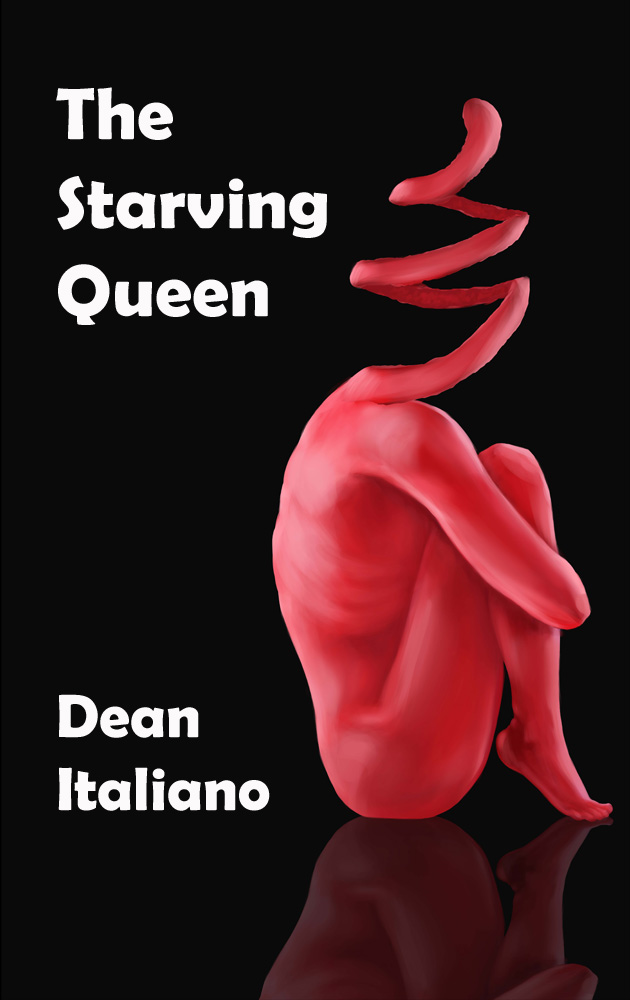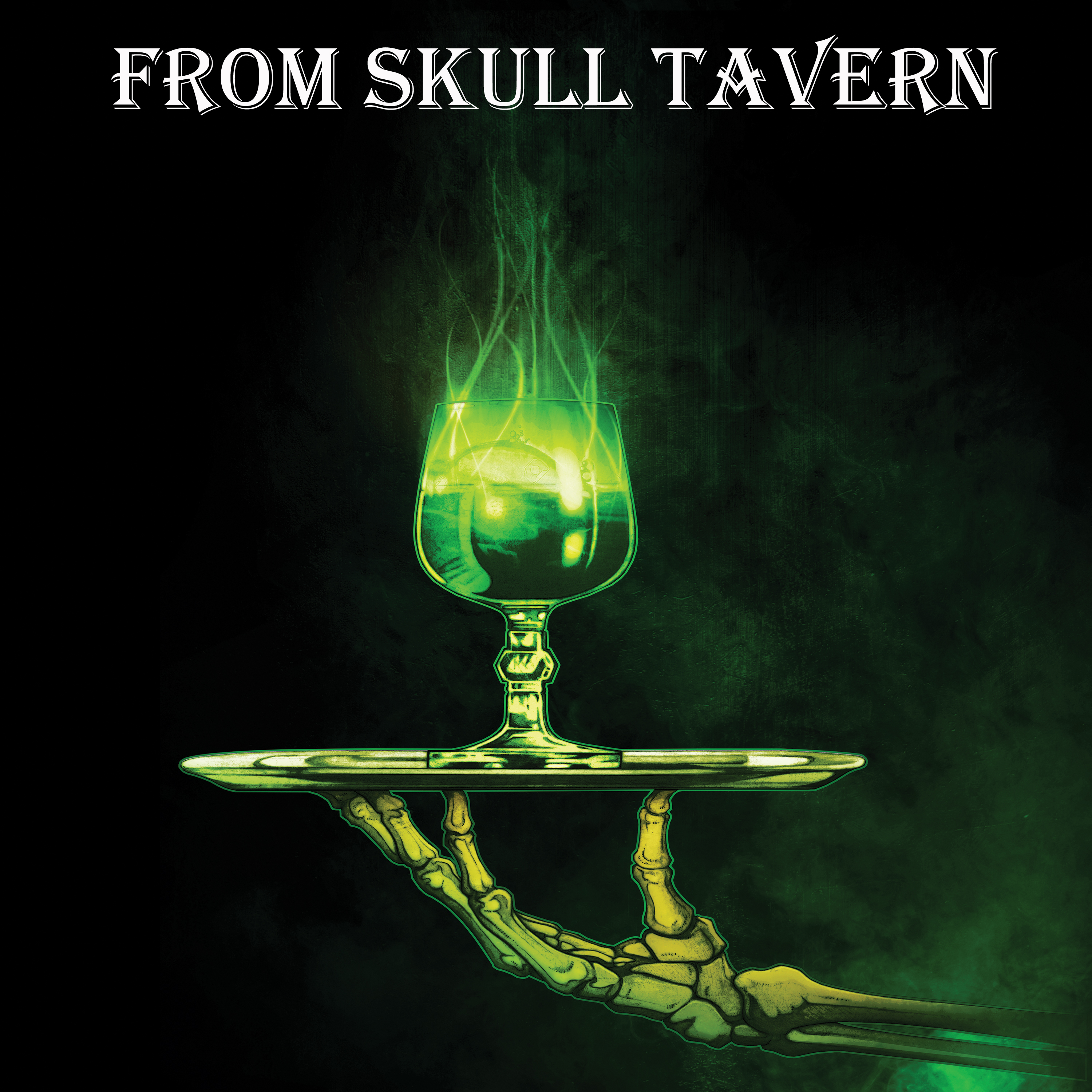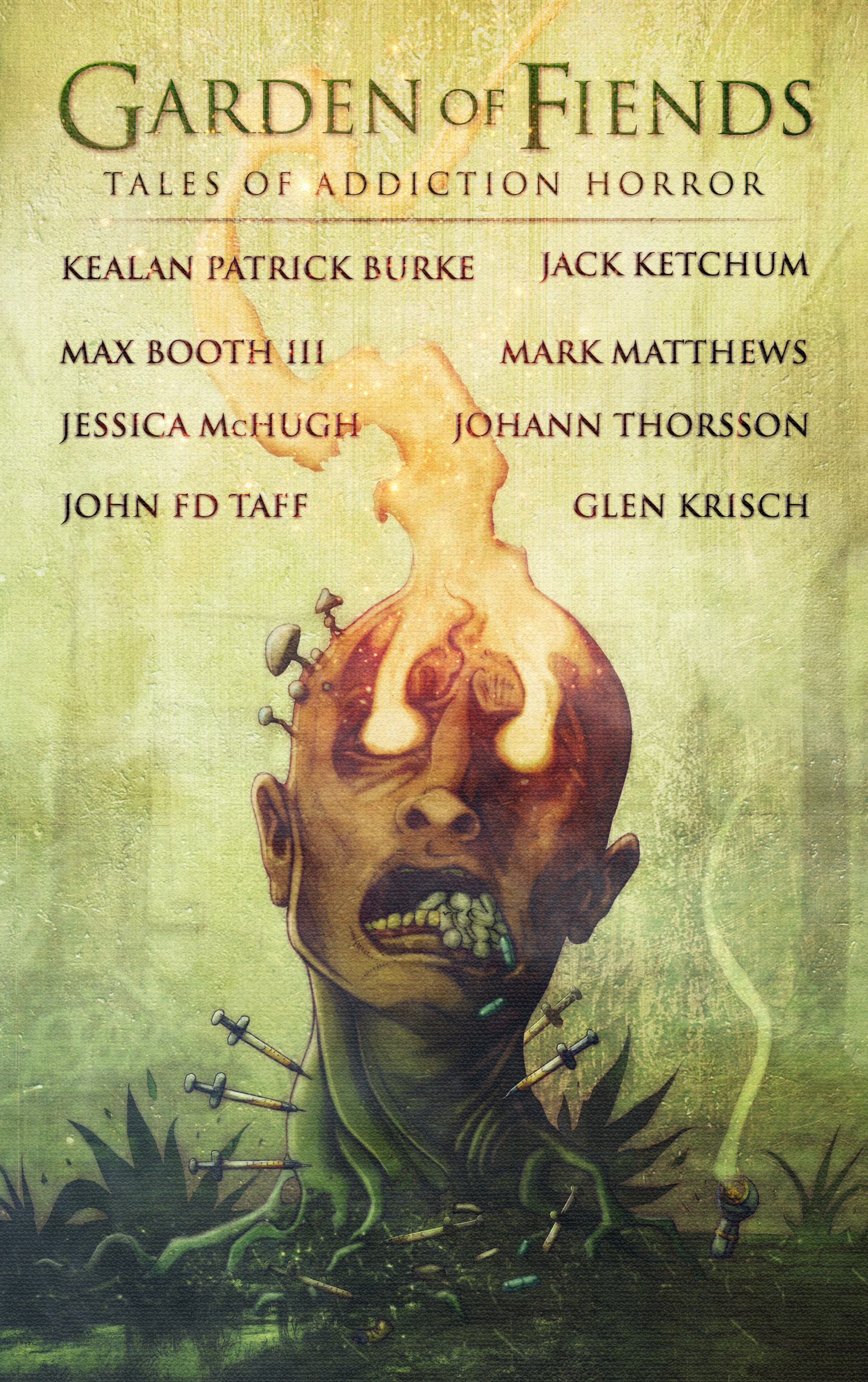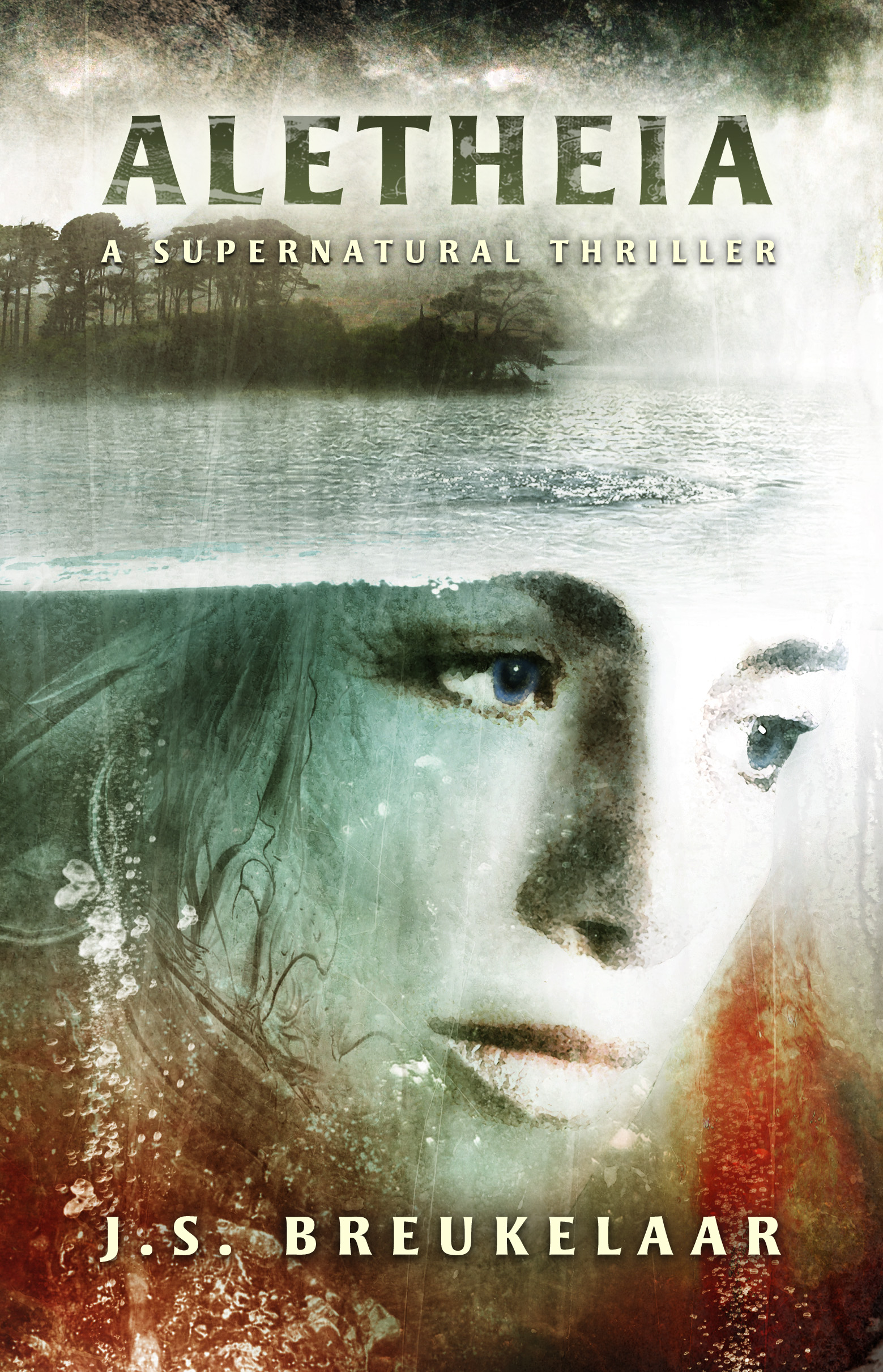This week on The Scariest Part, my very special guests are Dean and Giasone “G” Italiano, founders of the multimedia production company P.I.C. Publishing. Dean and G are dear friends of mine whom I’ve known for over fifteen years now, and I’m delighted to feature them talking about two of their newest projects, the music CD From Skull Tavern and the novel The Starving Queen, of which this is the description:
Jasmine faces more tragic events than the average teen. Her overworked mother, Bev, doesn’t see her enough, and visiting her dad, “Slip,” often makes things worse. Even Jasmine’s deepening relationship with her boyfriend Jason can’t lift her spirits enough, and depression seeps in.
The Queen relishes the descent into misery, and she wants Jasmine. The Queen hunts the lonely and dejected, pulling victims into her Kingdom. Her bony hand is invisible while covering Jasmine’s mouth, the stench of her world’s black sludge and the eerie sound of her voice only penetrates the minds of her loyal subjects.
Family and friends can’t see the Queen, but they are worried as they watch Jasmine drift even further out of reach.
…And closer to the Queen.
And now, let’s hear what the scariest part was for Dean and Giasone both:
Dean Italiano
The Starving Queen started out as a short story back in 2003. Throughout the years, the story has taken on various forms and lengths until I reached a full novel length worthy of editing.
The Queen is a ten-foot tall skeleton who reaches into the real world and strips flesh off of her loyal subjects. This allows her to add flesh to her own frame to become physically stronger and live forever. The reader is shown how the Queen operates through two main characters, Jasmine and Jason, as they fumble through difficult times in their young lives.
But that’s not the scariest part. When writing this story, it was important for me to blur the lines between reality and the Queen’s world full of dark sludge and strict rules. In the real world, the rules we give ourselves become sacred so that we may become better people, successful, or simply acceptable. When we break our own rules, we feel like failures and become even harder on ourselves. But what if those rules came from an unhealthy place? A self-abusive place, where mental illness slips in unseen, silent and stealthy. That’s the Queen reaching in, taking a little tendril of skin here and there, still reasonable, still something that people would applaud you for doing. “You’ve lost some weight! You look fabulous!” Or, “I admire how hard you push yourself to get in shape.”
The psychological element of the Queen, to me, is terrifying. It happens every day to millions of people. She sneaks in, slowly gains power to the point of taking over, becoming dangerous, and then deadly.
I also worked with G on the new CD, From Skull Tavern. There’s a song that started out as highly experimental. “Bad Hair Day” is a tie-in with The Staving Queen novel, an example of what it’s like to live with a mental illness. We toyed with the idea of making it full of vocal tracks, singing and vocal sound effects, but it wasn’t clicking. When we went to apply music to the idea, it became musically scary to perform. If any musicians listen to the song, they will recognize the musical breakdown that happens. I suspect not everyone will catch it.
The scariest part for me was trying to vocalize a mental breakdown, and trying to show that even the smallest, most menial daily tasks can seem insurmountable. I wasn’t sure if I’d be successful with the lyrics, the vocal performance, or if what I hoped would be a frantic piece would just flop and end up sounding like screaming nonsense.
For both projects, I hope I did the subject matter justice.
Giasone Italiano
The album started as an idea; let’s write songs about scary monsters. We set out to make an anthology about iconic and creepy things, and tried to represent as many classic and cool monsters as we could. We had many ideas that never made it past a title and a few lines, and others that we flushed out into full songs. As it turns out, the scariest monster on the CD is not a movie monster after all. In the first verse of “I See Red”, we meet a killer who you don’t even know is a threat:
“It’s like any other day
Until my fingers start to twitch
I need a special kind of scratch
For a special kind of itch
I’m in your rear-view mirror
I’m behind you in a line
Walking past you in the subway
I always bide my time”
In this day and age of 24-hour news and instant information, the stories that upset me the most are the ones about seemingly “normal” human beings doing unspeakable acts of cruelty and violence. On our CD, the scariest monster is the one that you don’t see coming until it is too late.
The Starving Queen: Amazon / Kobo / In print direct from P.I.C. Publishing
From Skull Tavern: Amazon / iTunes / Spotify / On CD direct from P.I.C. Publishing
P.I.C. Publishing: Website / Dean’s Facebook / Dean’s Twitter / Giasone’s Facebook
Dean and Giasone Italiano live with their twin boys in Waterloo, Ontario. Dean has been publishing novels, short stories and poetry since 2001. Giasone has been performing and writing music as a solo artist or in bands since 1994. Together, they are P.I.C. Publishing, and have recently released The Starving Queen, the From Skull Tavern CD, and The Narrowing (a one-act play chapbook).






